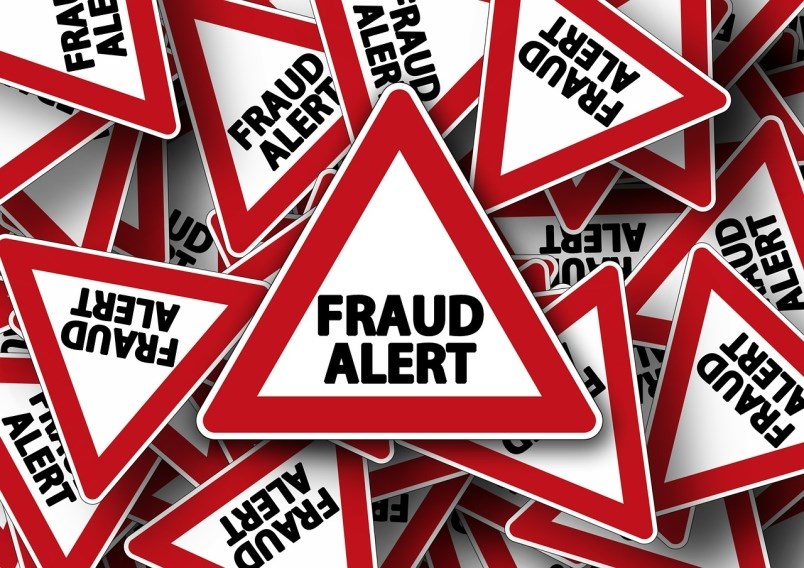There is no situation so bad that it can’t be made worse by crooks and scammers.
And that is certainly the case with the COVID-19 pandemic, according to the Better Business Bureau.
In a press release Friday, BBB said, “Scammers are using this global crisis to take advantage of people, many of whom may be more vulnerable during these uncertain times. They are capitalizing on prevailing fears and anxieties about the disease to fleece victims of their money and steal their identity.”
BBB also shared some information, first on people who’ve lost jobs and are looking for new employment:
• Always be wary of positions that do not require special training or licensing. Scammers are aware of these jobs and often use these otherwise legitimate titles in their fake ads. If the job posting is for a well-known brand, check the real company's job page to see if the position is posted there. Look online; if the job comes up in other cities with the exact same post, it is likely a scam.
• Watch out for job offers without an interview. A real company will want to talk to a candidate before hiring to ensure they have all the right traits for the job.
• Do not fall for an overpayment scam. No legitimate job would ever overpay an employee and ask for money to be wired elsewhere. Be careful if a company promises you great opportunities or big income as long as you pay for coaching, training, certifications or directories.
FAKE GOVERNMENT AID
With the federal and provincial governments instituting measures to cushion the impact of the pandemic on Canadians, be wary of scammers posing as government representatives:
• Educate yourself on the terms of existing financial aid programs being offered by the government or the province by visiting the government of Canada and/or the government of British Columbia websites for the latest updates and processes to claim assistance.
• Ignore unsolicited text messages or messages via social media claiming to be from the government — these are government impersonation scams. Remember, government agencies do not communicate through these channels.
• Be careful of unsolicited calls asking for your banking information. Scammers will cold call, asking basic questions to see if you qualify for a grant, and then ask for your banking information, saying they need to collect a one-time processing fee and directly deposit your money.
• Do not pay for a “free” grant. Remember, if you have to pay to claim it, it is not free. Do not send money via wire transfer or prepaid gift cards.
FAKE LOANS
The BBB is also cautioning consumers to be wary of predatory lending. When interest rates are enticing enough to consider taking out a loan or refinancing a loan for businesses or consumers, BBB recommends researching the lender before committing any financial information.
The practices that make up predatory lending can involve any of the players in the loan market: lenders, mortgage brokers, real estate brokers, attorneys, even home improvement contractors. These schemes often target people who are "house rich, but cash poor.” A similar scenario could happen with a small business owner who may be struggling to keep the business alive.
Consumers may get involved with predatory lenders in several ways. Some lenders or brokers use frequent advertising and neighbourhood visits to encourage people to take out loans. Others target certain communities, through advertising in a specific language. They may also target neighbourhoods with elderly homeowners. Other predatory lenders may focus on small business owners without much access to credit.
BBB advice includes:
• Do not sign any documents with blank lines (incomplete details) or with false or inaccurate information.
• Clarify all fees and terms and know what your loan will cost you each month and in total. Make sure you are comfortable with the terms of the loans that you apply for.
• Review all documents or have someone you trust to review them for you.
• Only do business with lenders that you have checked out and be very cautious about lenders or contractors who come to your door, or send unsolicited emails.
‘ADVANCE FEES’
As well, BBB is reminding consumers that requiring advance fees for loans is illegal in Canada and says to walk away from any loan offer with:
• Vague or unclear fees being charged before you get the money. There are often fees charged for loans such as application fees, appraisals and credit report fees; a real lender will post those fees prominently and collect them from the money they are lending you. A scam lender may try to collect them as a condition for you getting money.
• Guarantees and unusual payment methods. Real lenders never guarantee a loan in advance. They will check your credit score and other documents before providing an interest rate and/or loan amount and will not ask you to pay an upfront fee. Fees are never paid via unusual means such as iTunes cards or wiring money. Unusual payment methods and payments to an individual are key red flags.
For more tips and information about coronavirus, see BBB’s COVID-19 page.
If you have spotted a scam where fraudsters are impersonating local businesses to deceive consumers, report it to bbb.org/scamtracker. Your report can prevent others from being victimized.



